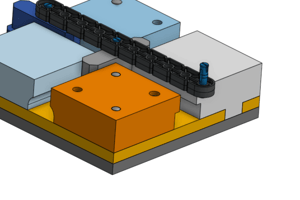Podcast
Questions and Answers
What is the darkened area on the cheeks or nose referred to as during pregnancy?
What is the darkened area on the cheeks or nose referred to as during pregnancy?
- Striae gravidarum
- Linea nigra
- Telangiectasis
- Melasma or chloasma (correct)
Which hormone is responsible for the formation of striae gravidarum during pregnancy?
Which hormone is responsible for the formation of striae gravidarum during pregnancy?
- Testosterone
- Prolactin
- Progesterone
- Estrogen (correct)
Which hormone is responsible for the whitish discharge present in the vagina during the first trimester of pregnancy?
Which hormone is responsible for the whitish discharge present in the vagina during the first trimester of pregnancy?
- Prolactin
- Estrogen
- Progesterone (correct)
- Testosterone
What causes the increase in growth of the uterus during the second trimester of pregnancy?
What causes the increase in growth of the uterus during the second trimester of pregnancy?
What is responsible for the vascular spiders seen on the thighs during pregnancy?
What is responsible for the vascular spiders seen on the thighs during pregnancy?
Flashcards are hidden until you start studying
Study Notes
Pregnancy Changes
- The darkened area on the cheeks or nose during pregnancy is referred to as chloasma or melasma.
Hormonal Changes
- The hormone responsible for the formation of striae gravidarum (stretch marks) during pregnancy is cortisol.
- The hormone responsible for the whitish discharge present in the vagina during the first trimester of pregnancy is estrogen.
Uterine Growth
- The increase in growth of the uterus during the second trimester of pregnancy is caused by estrogen and progesterone hormones.
Skin Changes
- Vascular spiders seen on the thighs during pregnancy are caused by estrogen, which increases blood flow and causes blood vessels to dilate.
Studying That Suits You
Use AI to generate personalized quizzes and flashcards to suit your learning preferences.




